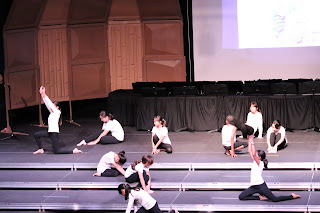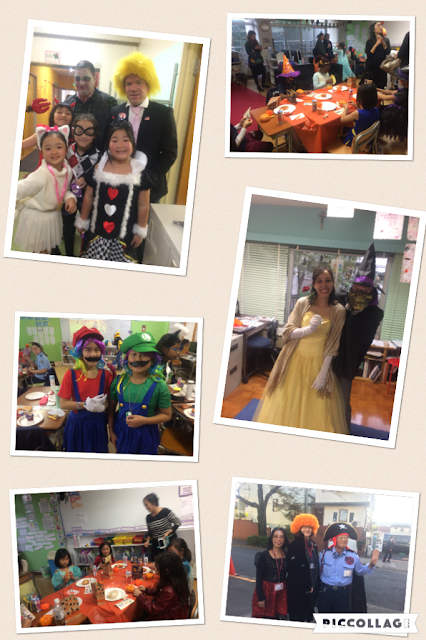How do you know when you've truly learned something worthwhile? What does 'deep' learning feel like? When it comes to learning, what responsibilities do we have as teachers and students?
These were some of the questions we explored with the Grade 6 students today. We started the session by getting the students' initial ideas about what they felt were the roles and responsibilities of students and teachers. After this, we introduced the metaphor of The Learning Pit to the students. The Learning Pit is a metaphor for learning, created by James Nottingham. It is a model that encourages a growth mindset amongst students and encourages them to seek challenges and push themselves beyond their comfort zone.
 |
| James Nottingham's Learning Pit. |
We asked the girls to look at the image, above, and to try to figure out how it could connect to learning. Some students made connections to the feelings that students may encounter at different stages of their learning; some students connected the stages of The Pit to the SOLO Taxonomy they are used to using in their units of inquiry to help guide their learning; some described what could be happening at each stage of The Pit.
After discussing our initial ideas we watched the video, below, to learn more about what The Learning Pit is and how to recognise when we might be there. Some signs that you are in The Pit could be:
- being 'stuck' or not knowing what to do next
- feeling frustrated or upset
- being tempted to give up
- noticing that you've stopped making progress.
Mr O'Shea, Ms. Sandra and Mr. Hughes shared their own experiences of finding themselves 'in The Pit', and how they managed to work hard and find strategies to get out of it (or not, in the case of Mr. Hughes, who gave up learning the guitar when it became too difficult and he couldn't play the B or F chords!). We talked about how not giving up and trying to figure out 'what to do when we don't know what to do' can build up resilience and stop us from becoming 'coasters' in our learning. Students then shared their own interesting examples of when they think they've experienced The Pit in school and other scenarios (which can also be seen in the slides, above).
We finished the session by adding to our ideas from the beginning of the session and students reflected on the roles and responsibilities of students and teachers. They were asked, 'Now that you know the most meaningful learning happens when you're in The Pit, how does this add to or change your ideas about the roles/responsibilities of students and teachers?'
The answers were intriguing, and can be seen in the slides, below, where students have used a different colour to show how their thinking changed from the beginning of the session.
Now the students have an expectation that their teachers will be regularly 'throwing them into The Pit'. They will start to reflect regularly on how to recognise when they're in The Pit and start to identify strategies to help themselves - and others - out of it. They will also start to recognise when their teachers are challenging them and encouraging them to take risks by entering The Pit themselves. One way to do this is to set challenging, or ambitious goals, rather than goals they feel will be easily achieved.
Now the students have an expectation that their teachers will be regularly 'throwing them into The Pit'. They will start to reflect regularly on how to recognise when they're in The Pit and start to identify strategies to help themselves - and others - out of it. They will also start to recognise when their teachers are challenging them and encouraging them to take risks by entering The Pit themselves. One way to do this is to set challenging, or ambitious goals, rather than goals they feel will be easily achieved.
We hope this metaphor and learning tool will help students seek and approach challenges in a new way - with excitement and enthusiasm. We hope that they start to see failure as an opportunity to learn and grow, rather than an obstacle (F.A.I.L = First Attempt In Learning). And we hope that this will build resilience in the students that will help them as they move up the school and eventually out into the world of work, where adults are thrown into The Pit on a regular basis! As we start preparing for the Exhibition after the Christmas holidays, the students will be entering The Pit often and we look forward to working with them to embrace the challenge of learning!
Have you been in The Pit recently? If not, maybe you're not pushing yourself to meet challenging goals! Why not launch yourself into The Pit?!


































